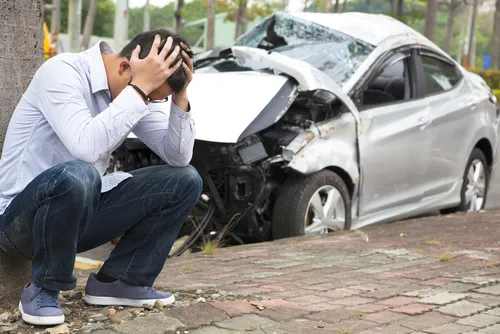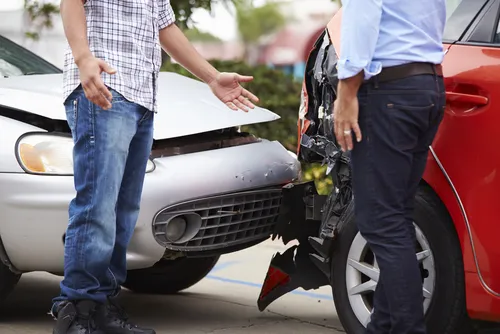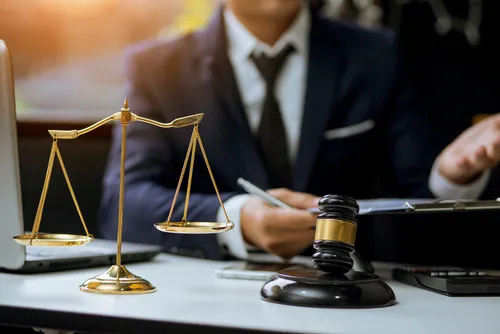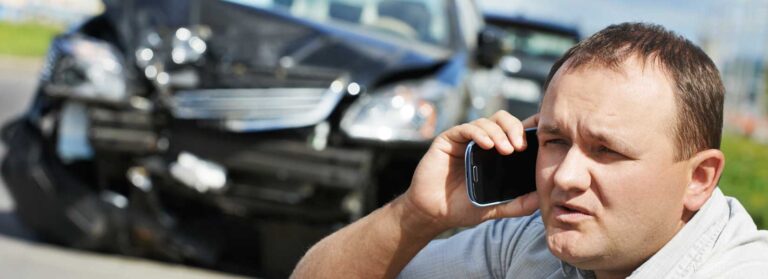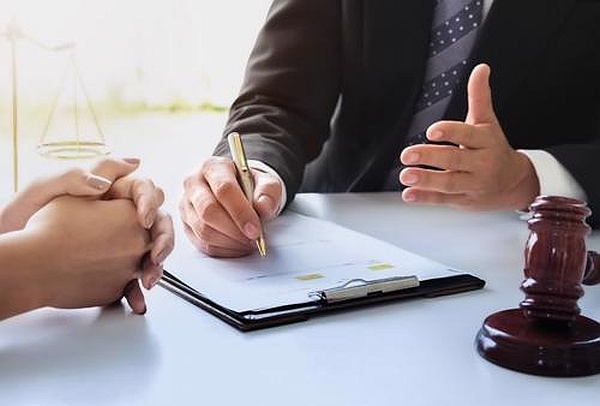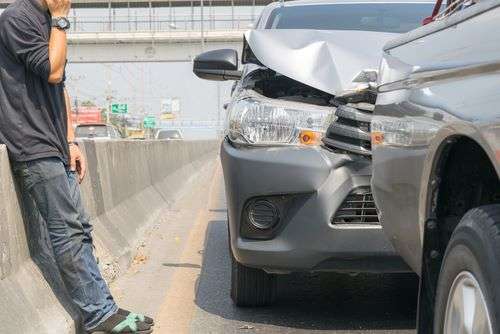Car accidents are always stressful, but it can be especially overwhelming when you are at fault. Not only do you have to deal with the aftermath of the accident, but you may also worry about the financial and legal consequences.
Being responsible for a car crash in Georgia means your insurance will pay for the costs. However, if you’re only partially at fault, you might still be able to recover compensation for your losses. At the Weinstein Firm, our experienced Atlanta car accident lawyers help clients recover maximum compensation, even in complex cases involving shared fault.
What Happens If You Are At Fault in a Car Accident?
Georgia is an at-fault state for car accidents. This means that the driver who is determined to be responsible for causing the car wreck is also liable for the resulting damages. In a car accident where you are at fault, your insurance company will be expected to cover the other driver’s medical bills, property damage, and other related expenses, such as pain and suffering.
If you are at fault, your liability insurance will step in to cover the damages up to the limits of your policy. However, if the costs exceed your policy limits, you may be personally responsible for the remainder. This is why it’s essential to have adequate liability insurance in place to protect your financial interests.
What Damages Are Covered by Insurance if You Cause an Accident?
Liability insurance is required by law in Georgia and covers the damages of the other party if you are at fault in a car accident. Liability coverage may pay for:
- Property Damage
- Medical Bills
- Lost Income
- Pain and Suffering
In most situations, you won’t have to cover these expenses out of pocket unless they exceed your auto insurance policy limits. However, if the injured driver files a lawsuit seeking compensation beyond what your policy covers, you could be held liable for the extra costs.
This is more likely in severe accidents, particularly those involving serious injuries or fatalities. Typically, your insurance provider will negotiate a settlement with the injured party, and you won’t have to go to court.
It’s important to understand that your liability insurance does not cover your own vehicle repairs or medical expenses. For that, you will need additional coverage, such as collision or medical payments insurance.
What About Damages to Your Vehicle?
While liability insurance covers the other party’s damages, you’ll need collision coverage to handle repairs to your vehicle in a car accident where you are at fault. Collision coverage is optional in Georgia, but it’s highly recommended if you want to avoid paying out of pocket for vehicle repairs or replacement.
If you have collision coverage, your insurance company will pay to repair your car after an auto accident, regardless of who was at fault. The amount you receive will be reduced by your deductible. If the cost to repair your car exceeds its value, the insurance company will declare it a total loss and pay you the car’s fair market value instead.
Without collision coverage, you’ll be responsible for covering your own vehicle repairs after an at-fault accident. Depending on the extent of the damage, these costs can be significant.
What You Should Do After a Car Accident
After a car accident that is your fault, it’s crucial to take the right steps to protect yourself legally and ensure your insurance claim is processed smoothly. Here’s what you should do:
Call the Police
Always call the police after a car wreck. You could be charged with a hit-and-run if you leave the accident scene. A police report is critical when filing an insurance claim. The accident report will include important details like how the car crash happened, weather conditions, and witness statements.
Avoid saying “It was my fault” or “I’m sorry” even if you believe you are responsible for the accident. Instead, stick to the facts when answering questions.
Exchange Insurance Information
After calling the police, exchange insurance information with the other driver. Be sure to provide your name, contact information, and insurance policy details. It’s also a good idea to collect contact information from any witnesses to the accident.
Take Photos and Document the Scene
Use your phone to take pictures of the accident scene, including any vehicle damage, road conditions, and injuries. Document as much information as possible to provide to your insurance company later.
Report the Accident to Your Insurance Company
You’ll need to notify your insurance company about the accident as soon as possible. Provide them with the police report and any photos or videos you took.
Seek Medical Attention
Even if you don’t think you’re injured, it’s important to get checked out by a doctor. Some injuries, such as whiplash or internal injuries, may not be immediately apparent. Getting medical attention also provides documentation of your injuries, which can be important if you need to file a claim for medical expenses.
What If You Are Partially at Fault in a Car Accident?
In some car accidents, fault may not be entirely clear-cut. Georgia follows a comparative negligence rule, which means that if you are partially to blame, you can still recover compensation. However, the amount you receive will be reduced by your percentage of fault.
For example, if you were 30% at fault in a car accident, you could still recover compensation for your medical bills and property damage. However, your total compensation would be reduced by 30%. If the total damages were $10,000, you would be eligible to receive $7,000 after the reduction for your share of fault.
In Georgia, you cannot recover compensation if you are 50% or more at fault for the accident. This is why it’s essential to work with an experienced Atlanta car accident lawyer who can help minimize your share of fault and maximize your compensation.
Will an At-Fault Accident Increase Your Insurance Rates?
One of the most common concerns after a car accident that is your fault is whether your insurance rates will increase. Unfortunately, the answer is typically yes. In Georgia, auto insurance companies usually raise premiums after an at-fault accident.
The amount your car insurance rates increase will depend on several factors, including:
The Severity of the Accident
If the accident caused significant property damage or serious injuries, your insurance company is more likely to raise your rates by a substantial amount.
Your Driving Record
If this is your first at-fault accident, the increase in your premiums may not be as high compared to someone with multiple prior accidents or traffic violations. Many insurers offer accident forgiveness programs that can prevent your rates from going up after your first accident, but this depends on your specific insurance policy.
The Amount Paid in Claims
The more money your insurance company has to pay out for the other driver’s medical bills, property damage, and pain and suffering, the more likely it is that your rates will increase.
Your Insurance Company’s Policies
Each insurance company has different guidelines for how they handle rate increases after an accident. Be sure to check your policy and ask your insurance agent about accident forgiveness or other programs that might help mitigate the impact on your premiums.
Contact Our Atlanta Car Accident Lawyers
After a car accident that is your fault, you likely have many questions and concerns about what comes next. You should review your insurance policy and talk to your insurance company about how to file a claim. It’s important to remember that you may be entitled to compensation if you share some of the blame.
Talk to an Atlanta car accident attorney about your case. At the Weinstein Firm, we are dedicated to helping accident victims get the full compensation they deserve. Contact us today by calling 770-HELP-NOW for a free consultation and learn how we can help you.
